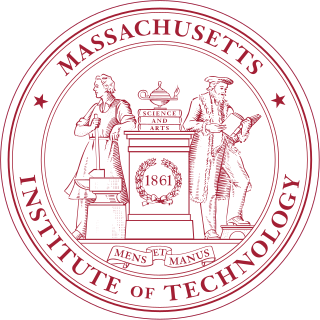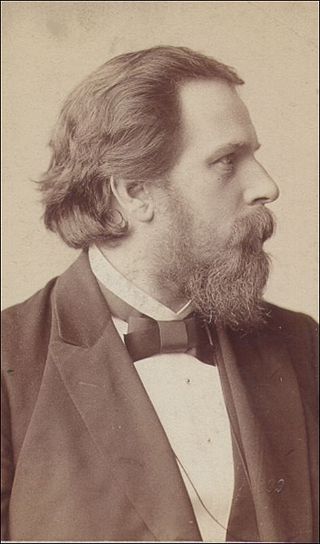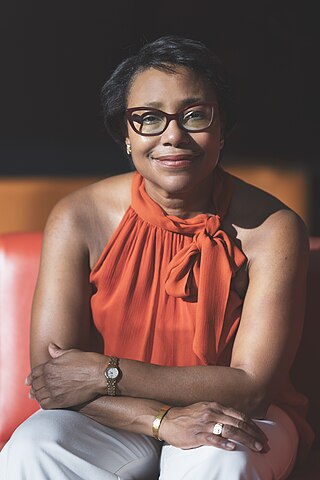Related Research Articles

The economy of Israel is a highly developed free-market economy. The prosperity of Israel's advanced economy allows the country to have a sophisticated welfare state, a powerful modern military said to possess a nuclear-weapons capability with a full nuclear triad, modern infrastructure rivaling many Western countries, and a high-technology sector competitively on par with Silicon Valley. It has the second-largest number of startup companies in the world after the United States, and the third-largest number of NASDAQ-listed companies after the U.S. and China. American companies, such as Intel, Microsoft, and Apple, built their first overseas research and development facilities in Israel. More than 400 high-tech multi-national corporations, such as IBM, Google, Hewlett-Packard, Cisco Systems, Facebook and Motorola have opened R&D centers throughout the country. As of 2024, the IMF estimated Israel has the 26th largest economy in the world by nominal GDP, and one of the biggest economies in the Middle East.

The Massachusetts Institute of Technology (MIT) is a private research university in Cambridge, Massachusetts, United States. Established in 1861, MIT has played a significant role in the development of many areas of modern technology and science.

MIT OpenCourseWare is an initiative of the Massachusetts Institute of Technology (MIT) to publish all of the educational materials from its undergraduate- and graduate-level courses online, freely and openly available to anyone, anywhere. The project was announced on April 4, 2001, and uses Creative Commons Attribution-NonCommercial-ShareAlike license. The program was originally funded by the William and Flora Hewlett Foundation, the Andrew W. Mellon Foundation, and MIT. MIT OpenCourseWare is supported by MIT, corporate underwriting, major gifts, and donations from site visitors. The initiative inspired a number of other institutions to make their course materials available as open educational resources.

Shirley Ann Jackson, is an American physicist, and was the 18th president of Rensselaer Polytechnic Institute. She is the first African American woman to have earned a doctorate at the Massachusetts Institute of Technology (MIT) in Theoretical Elementary Particle Physics, and the first African American woman to have earned a doctorate at MIT in any field. She is also the second African American woman in the United States to earn a doctorate in physics.

Robert Merton Solow, GCIH was an American economist and Nobel laureate whose work on the theory of economic growth culminated in the exogenous growth model named after him.

Michael Albert is an American economist, speaker, writer, and political critic. Since the late 1970s, he has published on a variety of subjects. He has set up his own media outfits, magazines, and podcasts. He is known for helping to develop the socioeconomic theory of participatory economics.

The MIT Media Lab is a research laboratory at the Massachusetts Institute of Technology, growing out of MIT's Architecture Machine Group in the School of Architecture. Its research does not restrict to fixed academic disciplines, but draws from technology, media, science, art, and design. As of 2014, Media lab's research groups include fetus, biologically inspired fabrication, socially engaging robots, emotive computing, bionics, and hyperinstruments.

The Stanford Graduate School of Business is the graduate business school of Stanford University, a private research university in Stanford, California. For several years it has been the most selective business school in the United States, admitting only about 6% of applicants.
The MIT Lincoln Laboratory, located in Lexington, Massachusetts, is a United States Department of Defense federally funded research and development center chartered to apply advanced technology to problems of national security. Research and development activities focus on long-term technology development as well as rapid system prototyping and demonstration. Its core competencies are in sensors, integrated sensing, signal processing for information extraction, decision-making support, and communications. These efforts are aligned within ten mission areas. The laboratory also maintains several field sites around the world.

Indra Nooyi is an Indian-born American business executive who was the chairman and chief executive officer (CEO) of PepsiCo from 2006 to 2018.

Hacks at the Massachusetts Institute of Technology are practical jokes and pranks meant to prominently demonstrate technical aptitude and cleverness, and/or to commemorate popular culture and historical topics. The pranks are anonymously installed at night by hackers, usually, but not exclusively, undergraduate students. The hackers' actions are governed by an informal yet extensive body of precedent, tradition and ethics. Hacks can occur anywhere across campus, and occasionally off campus; many make use of the iconic Great Dome, Little Dome, Green Building tower, or other prominent architectural features of the MIT campus. Well-known hacker alumni include Nobel Laureates Richard P. Feynman and George F. Smoot. In October 2009, US President Barack Obama made a reference to the MIT hacking tradition during an on-campus speech about clean energy.

Max Rubner was a German physiologist and hygienist.
OpenCourseWare (OCW) are course lessons created at universities and published for free via the Internet. OCW projects first appeared in the late 1990s, and after gaining traction in Europe and then the United States have become a worldwide means of delivering educational content.

Ya'akov Shimshon Shapira was an Israeli jurist and Labor Zionist politician.

Subra Suresh is an Indian-born American engineer, materials scientist, and academic leader. He is currently Professor at Large at Brown University and Vannevar Bush Professor of Engineering Emeritus at the Massachusetts Institute of Technology (MIT). He was Dean of the School of Engineering at MIT from 2007 to 2010 before being appointed as Director of the National Science Foundation (NSF) by Barack Obama, where he served from 2010 to 2013. He was the president of Carnegie Mellon University (CMU) from 2013 to 2017. Between 2018 and 2022, he was the fourth President of Singapore's Nanyang Technological University (NTU), where he was also the inaugural Distinguished University Professor.

Hult International Business School is a private business school with campuses in London, San Francisco, Dubai, New York City, and Cambridge, Massachusetts. Hult is named for the school's benefactor Bertil Hult and is affiliated with the EF Education First Group.

Paula Therese Hammond is an Institute Professor and the Vice Provost for Faculty at the Massachusetts Institute of Technology (MIT). She was the first woman and person of color appointed as head of the Chemical Engineering department. Her laboratory designs polymers and nanoparticles for drug delivery and energy-related applications including batteries and fuel cells.

Dina Katabi is the Andrew and Erna Viterbi Professor of Electrical Engineering and Computer Science at MIT and the director of the MIT Wireless Center. She was designated as one of the world’s most influential women engineers by Forbes magazine.
Roger Everett Summons is the Schlumberger Professor of Geobiology at the Massachusetts Institute of Technology and Professor of Geobiology in the Department of Earth, Atmospheric and Planetary Sciences.
Rubner may refer to:
References
- ↑ "Michael Rubner". mit.edu. Retrieved April 26, 2017.[ dead link ]
- ↑ "Michael Rubner". mit.edu. Retrieved April 26, 2017.[ dead link ]